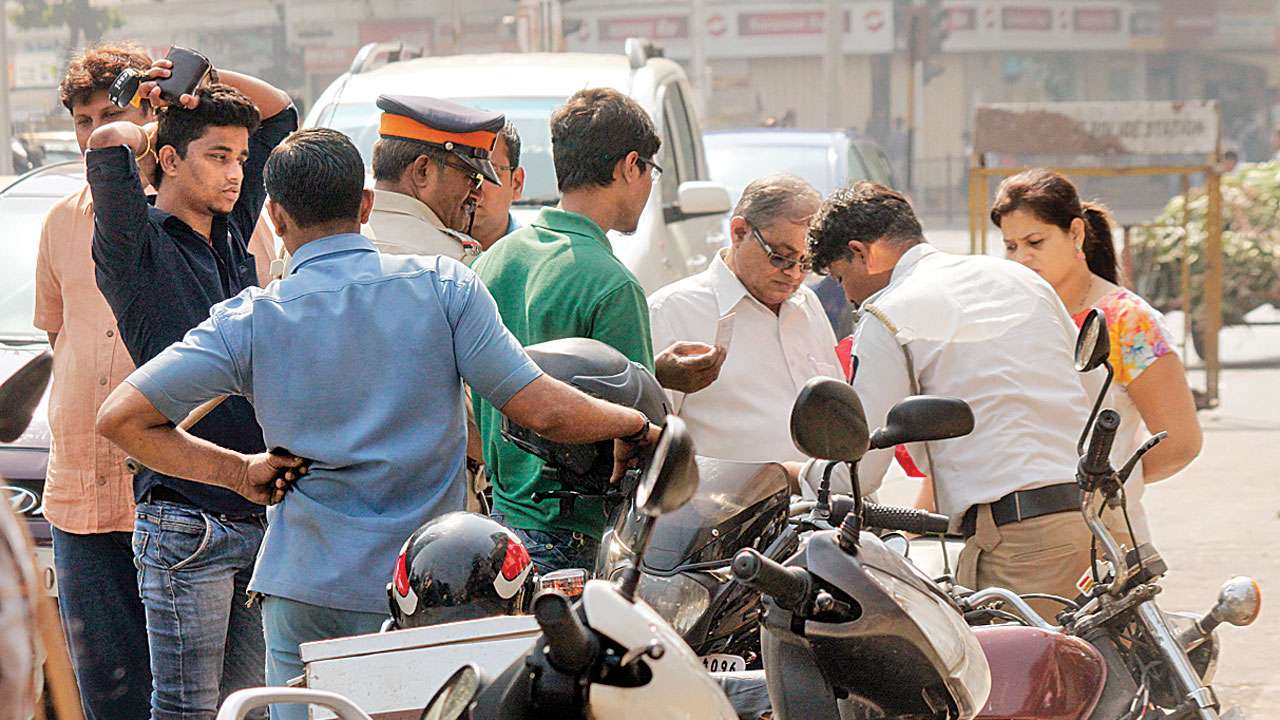
As I live on a street off CG Road, with Metrorail construction on one exit and CG road redevelopment work on the other, I am getting to experience the urban chaos at its fullest.
Though it is a bit nightmarish, I prefer to enjoy it by watching India, or rather us the citizens in action while subjected to incredible amount of inconvenience caused by our own unruly behaviour.
Left with only one street to drain not just the local but diverted traffic, it is easy to imagine the mayhem, but I want you to multiply by ten as it also has a coaching class and a construction material supplier with fifty loading rickshaws to amplify the chaos!
In short, it is a chakra-vyuha that Abhimanyu would have given up on, and yet hardened citizens negotiate it with one super power granted to us by the state, i.e. affordability of crime, and to understand this unique idea, we need to dissect the scene a bit.
If I take a photograph of the maze, it will be easy for me to put a cost on every feature of chaos, as they are all formed by acts of crime that get classified as petty crimes with a small amount of fine attached to them.
The kids of coaching class park on the road and hence they can be fined by a small amount. The material supplier and his tempo turmoil can also get away by couple of thousand rupees of fine at the best. Adventurous chaps who drive on the wrong side to add some more twists to the maze can also earn the state some more money.
In short, this chocking, polluting maze is constructed by citizens who deliberately indulge into criminal acts, and yet it can attract only a negligible amount of fine.
The reason why we have an absurd situation where a crime causes a huge loss to the system and yet it is classified as petty enough not to attract large fine is because we have been using faulty jurisprudence.
There are three major reasons why traffic violations are treated as petty crimes.
First is that fining is done by on-the-spot judgement that doesn't allow the due process of justice of listening to the accused. Second is that these crimes are believed to be causing no big harm to the system, and the third and practically the most important reason is that most Indian citizens can't afford to pay a large fine.
If we look at the first two, it is easy to see that context has changed. Modern technology like CCTV will disallow arbitrariness, and in a large city, even a small violation like jumping a traffic light can be recognised to trigger a traffic chaos that will lead to huge loss to the system.
With first two down, we need to focus on the third, i.e. idea of keeping crime "affordable", as it has a hidden misconception keeping it emotionally attractive for the state.
While we worry about a poor autowala or a working class person's plight if faced with a thousand rupee fine for driving on wrong side, the question that we really need to ask is, is it difficult for anyone not to commit this crime?
The truth is, not committing a petty crime is not at all difficult. Everyone has an easy choice of avoid getting fined, so there is no real need to worry about keeping the cost of committing a petty crime low.
So, the jurisprudence used to keep petty crimes affordable is faulty and needs a diametric shift in the other direction. All the petty crimes that are easy to avoid need to attract harsh fines to prevent them from snowballing into a massive cost for all of us.
City-based science nomad who tries to find definitive answers